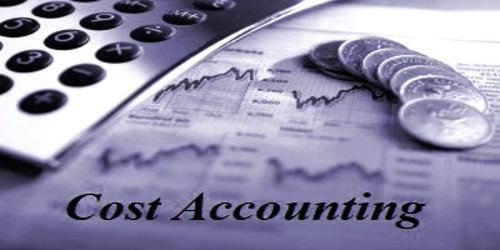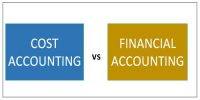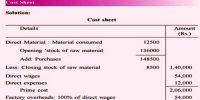Cost accounting is the process of collecting information about the costs incurred by a company’s activities, assigning selected costs to products and services and other cost objects, and evaluating the efficiency of cost usage. It is mostly concerned with developing an understanding of where a company earns and loses money, and providing input into decisions to generate profits in the future.
The Institute of Cost and Management Accounting defines – “Cost accounting is the process of accounting from the point at which expenditure is incurred or committed to the establishment of its ultimate relationship with cost centers and cost units. In the widest usage, it embraces the preparation of statistical data, application of cost control methods and the ascertainment of profitability of activities carried out or planned.”
The different types are:
- Marginal Costing: In this technique, only the variable costs for additional units produced will be considered.
- Standard Costing: In this technique of costing the costs incurred are compared to the predetermined cost of the product, process or project.
- Direct Costing: In this technique, all the direct costs incurred for a particular product.
- Historical Costing: It is comparison of all costs incurred after the process is performed.
- Uniform Costing: In this technique, same costing practices are followed across certain units to facilitate comparison.
- Absorption costing: This is a method of full costing.
Cost accounting as a tool of management provides management with detailed records of the costs relating to products, operations or functions. It is a method of accounting wherein all the costs involved in performing any procedure, project or product are noted and analyzed. The costs so determined and accumulated may be the estimated future costs for planning purposes or actual costs for evaluating performance.















